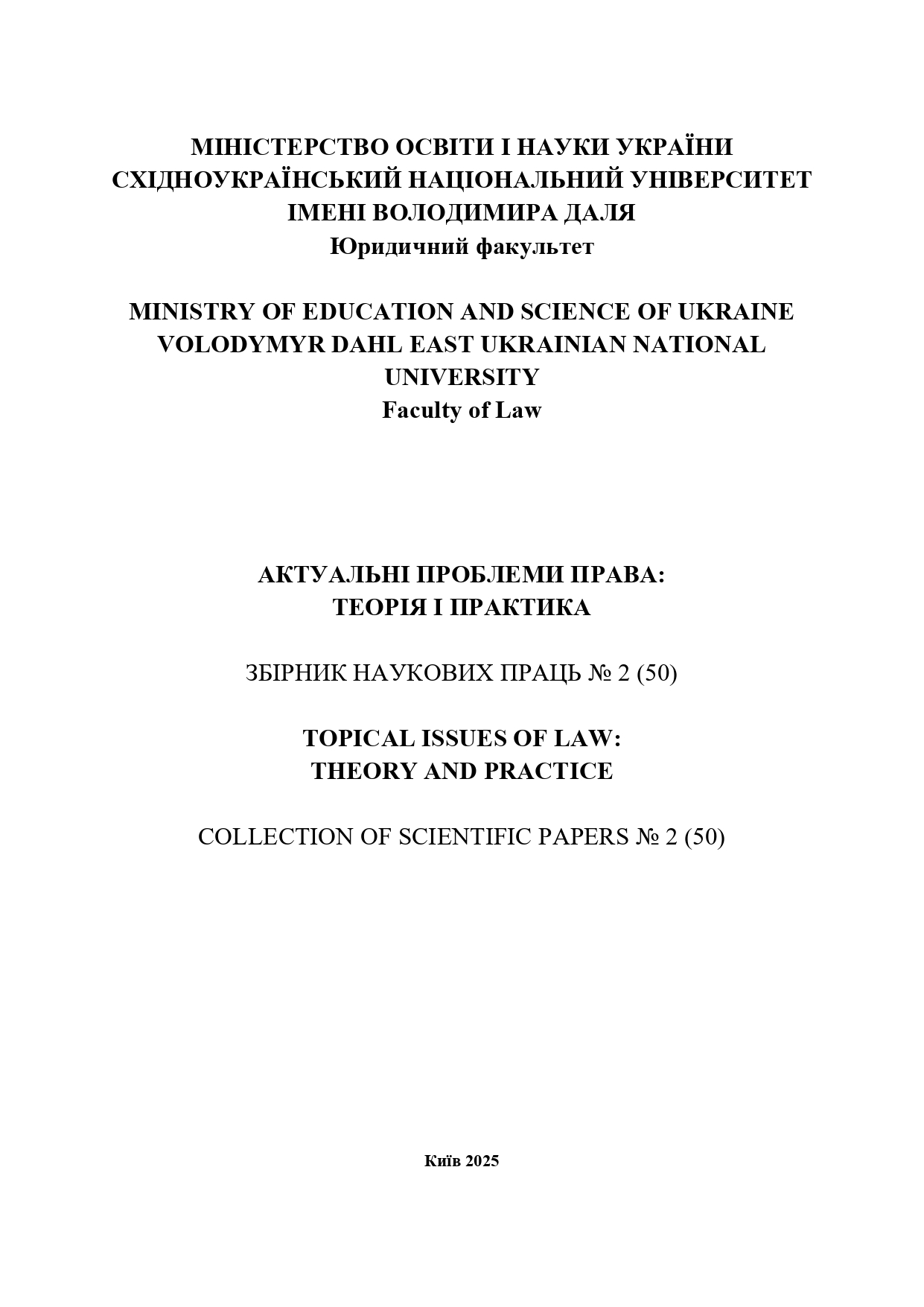MODERNIZATION OF UKRAINIAN LABOR LEGISLATION IN THE CONTEXT OF NON-STANDARD EMPLOYMENT: NATIONAL AND INTERNATIONAL GUIDELINES
DOI:
https://doi.org/10.33216/2218-5461/2025-50-2-189-206Abstract
The article explores the legal nature of nonstandard
forms of employment amid the
transformation of the labor market, martial law,
digitalization, and social changes in Ukraine. The
author analyzes theoretical approaches to the concept
of non-standard employment, identifies its key types
(remote, home-based, flexible, temporary, and
platform work), and outlines the main challenges
faced by the state, employers, and workers. The
influence of international standards—ILO
Conventions and Recommendations, as well as EU
directives—on the formation of national policies in the
regulation of atypical forms of labor is examined.
The paper includes a review of relevant judicial
practice, particularly decisions of the Supreme Court
of Ukraine and landmark foreign rulings (e.g., Uber
BV v Aslam), which impact the classification of labor
relations in the digital environment.
The author substantiates the need to update the
Labor Code of Ukraine in light of new labor realities
and proposes specific amendments to its articles in
accordance with the rules of legal drafting. The
conclusion is drawn that non-standard employment is
no longer a peripheral phenomenon but a stable
component of the labor market, necessitating a fair, flexible, and inclusive model of legal regulation.
Keywords: remote work, martial law, distance employment, digitisation of labour rights, remote worker, international standards, International Labour Organization, non-standard employment, labor contract, labor relations.

